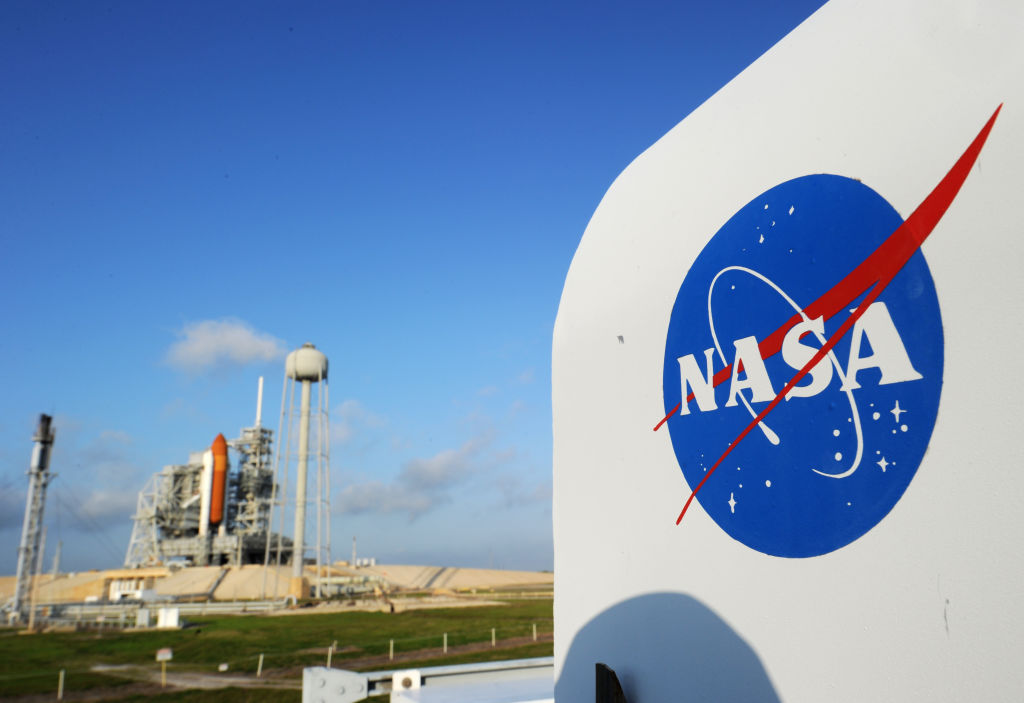NASA will pay you up to $187,000 to defend Earth from aliens


A free daily email with the biggest news stories of the day – and the best features from TheWeek.com
You are now subscribed
Your newsletter sign-up was successful
NASA created the "planetary protection officer" position to defend Earth and the cosmos from alien contamination following the Outer Space Treaty of 1967. If that sounds like the science-fiction job of your dreams, congratulations, because you can now apply for it, Business Insider reports.
While "planetary protection officer" certainly seems more X-Files than real life, it assuredly is — and so is the salary, which ranges from $124,406 to $187,000 a year.
The creation of the position stems from Article IX of the Outer Space Treaty, which demands nations and parties exploring space "adopt appropriate measures" to "avoid [the] harmful contamination [of other planets] and also adverse changes in the environment of the Earth resulting from the introduction of extraterrestrial matter." The agreement requires space missions to have a less than 1-in-10,000 chance of contaminating another planet.
The Week
Escape your echo chamber. Get the facts behind the news, plus analysis from multiple perspectives.

Sign up for The Week's Free Newsletters
From our morning news briefing to a weekly Good News Newsletter, get the best of The Week delivered directly to your inbox.
From our morning news briefing to a weekly Good News Newsletter, get the best of The Week delivered directly to your inbox.
There are only two full-time planetary protection officer positions in the world — one at NASA, and the other at the European Space Agency. "This new job ad is a result of relocating the position I currently hold to the Office of Safety and Mission Assurance, which is an independent technical authority within NASA," said Catharine Conley, who has served as NASA's primary planetary protection officer since 2006.
Applicants must have "advanced knowledge" of planetary protections and a year of experience as a top-level civilian government employee. They additionally must have "demonstrated experience planning, executing, or overseeing elements of space programs of national significance" and hold an advanced degree in physical science, engineering, or mathematics.
But once you check all those boxes, you get "secret" security clearance — and one can only imagine what kinds of things planetary protection officers might get to know. View the job listing here.
A free daily email with the biggest news stories of the day – and the best features from TheWeek.com
Jeva Lange was the executive editor at TheWeek.com. She formerly served as The Week's deputy editor and culture critic. She is also a contributor to Screen Slate, and her writing has appeared in The New York Daily News, The Awl, Vice, and Gothamist, among other publications. Jeva lives in New York City. Follow her on Twitter.
-
 Local elections 2026: where are they and who is expected to win?
Local elections 2026: where are they and who is expected to win?The Explainer Labour is braced for heavy losses and U-turn on postponing some council elections hasn’t helped the party’s prospects
-
 6 of the world’s most accessible destinations
6 of the world’s most accessible destinationsThe Week Recommends Experience all of Berlin, Singapore and Sydney
-
 How the FCC’s ‘equal time’ rule works
How the FCC’s ‘equal time’ rule worksIn the Spotlight The law is at the heart of the Colbert-CBS conflict
-
 TikTok secures deal to remain in US
TikTok secures deal to remain in USSpeed Read ByteDance will form a US version of the popular video-sharing platform
-
 Unemployment rate ticks up amid fall job losses
Unemployment rate ticks up amid fall job lossesSpeed Read Data released by the Commerce Department indicates ‘one of the weakest American labor markets in years’
-
 US mints final penny after 232-year run
US mints final penny after 232-year runSpeed Read Production of the one-cent coin has ended
-
 Warner Bros. explores sale amid Paramount bids
Warner Bros. explores sale amid Paramount bidsSpeed Read The media giant, home to HBO and DC Studios, has received interest from multiple buying parties
-
 Gold tops $4K per ounce, signaling financial unease
Gold tops $4K per ounce, signaling financial uneaseSpeed Read Investors are worried about President Donald Trump’s trade war
-
 Electronic Arts to go private in record $55B deal
Electronic Arts to go private in record $55B dealspeed read The video game giant is behind ‘The Sims’ and ‘Madden NFL’
-
 New York court tosses Trump's $500M fraud fine
New York court tosses Trump's $500M fraud fineSpeed Read A divided appeals court threw out a hefty penalty against President Trump for fraudulently inflating his wealth
-
 Trump said to seek government stake in Intel
Trump said to seek government stake in IntelSpeed Read The president and Intel CEO Lip-Bu Tan reportedly discussed the proposal at a recent meeting
